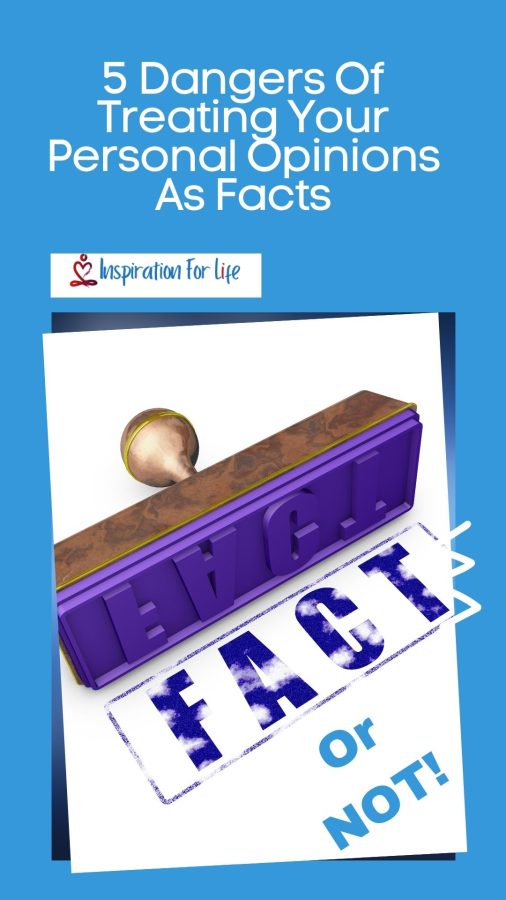Opinions have become a huge part of communicating. However, when someone offers their opinions as facts, it can often mislead or confuse the person or persons to which they are speaking.
In many cases, personal ideas stated as facts can harm your credibility and integrity. For example, if you discuss politics with your friends, it is helpful to let them know your opinion is just that and nothing else.
How can we help you?
Find out more information about our
exclusive private Facebook group.
Likewise, make sure to let others know research does not back your statement. You can lose credibility when opinions are presented wrongly as facts because others will not believe what you have to say in the future.
Maybe we wrongly treat our ideas as facts because many cannot discern the difference between them, with this in mind, we will look at this statement later in this article.
Opinions As Facts
Opinions result from an individual’s perspective on a subject or situation, which stems from their knowledge, experiences, and values. Our beliefs can vary greatly.
We all form opinions and, at times, tend to present them as facts. But unless the evidence backs them, they are only the person’s bias. As a result, we can often mislead and distort people’s understanding of an issue, leading to disastrous consequences.
5 Dangers Of Treating Personal Opinions As Facts
1. Misunderstanding
Everyday communication can lead to misunderstanding, but it can be dangerous to interject our personal opinions into a conversation without making it known that it is just our opinion. Arguments, hurt feelings, and a lack of respect can take place.
Some opinions are open to various interpretations, and people will often take them literally. When someone finds out your idea is not backed by evidence, it can cause hard feelings and distrust.
2. You Can Appear Ignorant
When you offer opinions as facts, it looks like you don’t have the knowledge or evidence to back up your statements. I’ve seen people walk away and completely lose respect or see the person as ignorant when they realize what they heard was only an opinion.
3. Opinions As Facts Can Be Used Against You.
Some will take opinions stated as facts totally out of context and use them against another, which can also cause irreversible damage. Someone else could twist your words around. The opinion is all messed up, and it looks like the person misled others, not to mention it will also make you look bad.
Situations like these could lead to negative consequences, such as getting in trouble with authorities or losing credibility.
4. It Can Damage Relationships.
When we offer our thoughts without evidence, it can easily damage relationships. Relationships are fragile, and others will likely feel betrayed. They took the statements to heart and were disappointed when they realized they were not facts.
Others may feel like you were lying to them and trying to persuade or manipulate their thoughts, which will likely leave them feeling hurt and betrayed as well.
5. Violence Or Conflict Can Result From Opinions As Facts
One of the scariest things that can happen when trying to push an opinion off as factual is inciting violence or conflict. When this happens, it is easy for people on either side to take offense. The offense can produce a solid need to defend their own opinions, which in turn can provoke a deep passion and need to protect themselves. When we feel this strong need for protection, it can lead to physical violence.
In conclusion, opinions as facts can be dangerous because they often mislead individuals and groups, making it challenging to have productive discussions or relationships. It is important to remember that your thoughts are your own and should not be mistaken for factual evidence. Offer opinions and let others know they are not evidence-based, and you’ll be less likely to run into these dangers.
How To Discern The Difference Of Opinions And Facts
The best way to discern opinions from facts is to approach everything with a skeptical mind. When hearing something, ask yourself if it is evidence-based and researched.
When opinions begin to sound like facts, it’s important to make everyone aware they are just opinions. Not everyone has to agree with them. By understanding the dangers, we are more mindful of presenting our thoughts and avoiding potentially harmful consequences.
Tactfully Let Others Know It Is An Opinion And Not A Fact
One can tactfully let others know opinions are not facts. One way is to say, “I’m just expressing my opinion/perspective here.” If someone else asks for your opinion, be honest but always remember to let them know your thoughts are just your opinion and not a fact you have researched.

You can even use specific words when giving opinions, such as “in my opinion” or “I believe.” Remind the person asking for your idea that it is just an opinion, not a fact.
Conclusion
Opinions presented as facts can be dangerous because they often mislead individuals and groups. These interactions make it difficult to have productive discussions or relationships.
In some circumstances, your thoughts can ultimately do more harm than good. One should never present opinions as facts.
People will likely feel betrayed when they find out the opinions they respected were not facts. The feeling of betrayal can cause a lack of trust. Spewing a personal assertion can make others feel manipulated, likely leaving them feeling hurt and betrayed.
Always be truthful and upfront with people, especially regarding opinions. Remember that opinions are just opinions- they shouldn’t be presented as facts.
Thank you for reading! I hope this article provides some valuable insight into the dangers of opinions as facts. If you have any thoughts or ideas, please share them in the comments below. I’d love to hear what you have to say!


